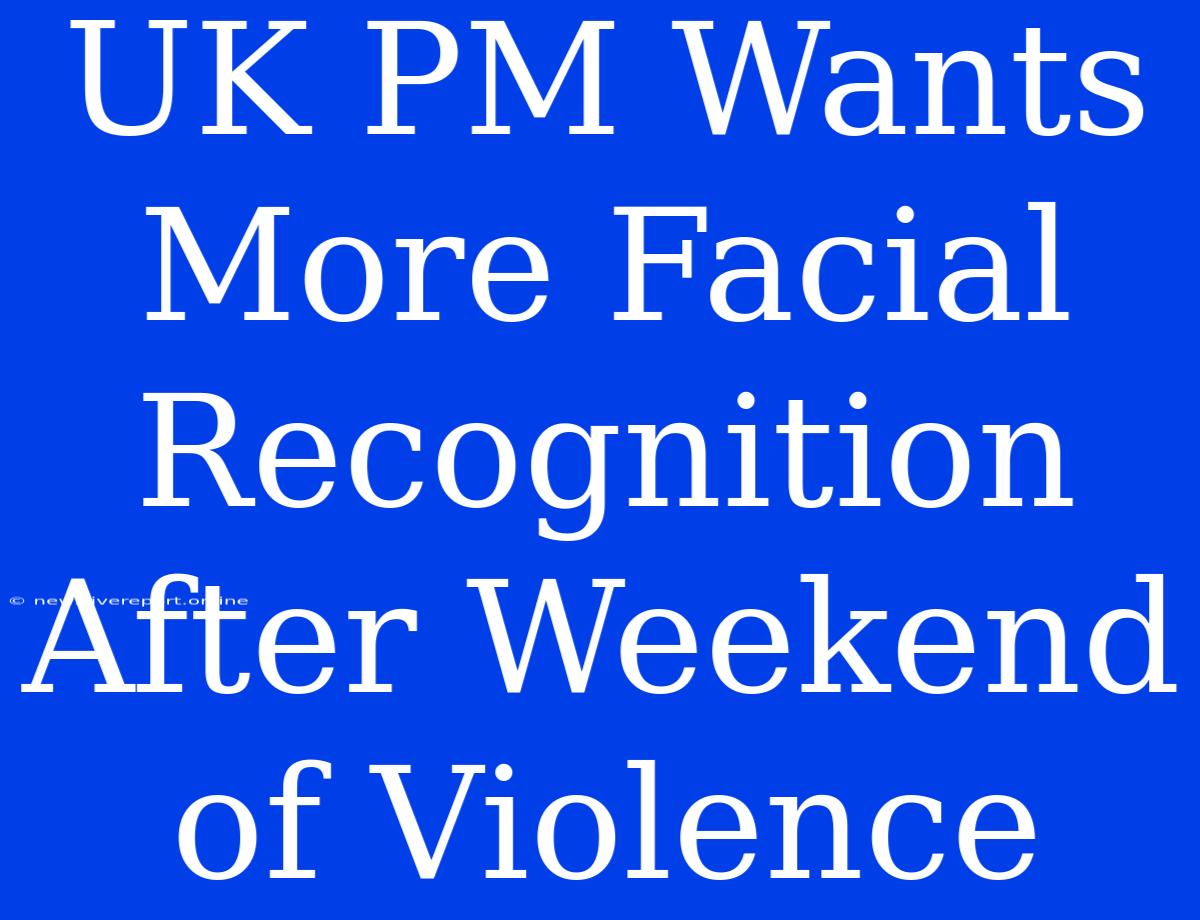UK PM Wants More Facial Recognition After Weekend of Violence: A Step Too Far?
The UK is grappling with a surge in violence following a weekend of unrest in several cities. In response, Prime Minister Rishi Sunak has called for expanded use of facial recognition technology, a move that has sparked heated debate about security versus privacy.
The Context:
The call for expanded surveillance comes after a weekend marred by violence and disorder, with multiple incidents of rioting and vandalism across England. The events have left communities feeling vulnerable and demanding a stronger response from authorities.
Sunak's Proposal:
In a televised address, Sunak expressed his determination to crack down on crime and restore order. He stated that he believes facial recognition technology is a crucial tool in this fight, enabling quicker identification of suspects and deterring future violence. He announced plans to invest in the development and deployment of new facial recognition systems across the UK, aiming to expand its use beyond its current limited applications.
The Controversy:
While many support the use of technology to combat crime, the proposal has drawn criticism from privacy advocates and civil liberties groups. Critics argue that facial recognition technology raises serious ethical and legal concerns, including:
- Privacy Violations: The widespread deployment of facial recognition systems would mean constant surveillance of citizens, potentially leading to breaches of personal privacy.
- Potential for Misuse: The technology has been shown to be prone to errors, particularly with regard to people of color, potentially leading to wrongful arrests or discrimination.
- Chilling Effect on Freedom: The constant fear of being under surveillance could deter individuals from exercising their right to freedom of expression and assembly.
The Debate Continues:
The debate over the use of facial recognition technology in the UK is likely to intensify. It forces society to confront a complex balancing act between security and privacy, with no easy answers. As the UK grapples with the recent violence, the question remains: Is increased facial recognition the answer, or will it come at too high a cost to our freedoms?
Key Takeaway:
The UK's response to the recent violence raises crucial questions about the role of technology in maintaining public safety. The debate over facial recognition highlights the delicate balance between security and privacy, a tension that will likely continue to shape policy decisions in the future.

